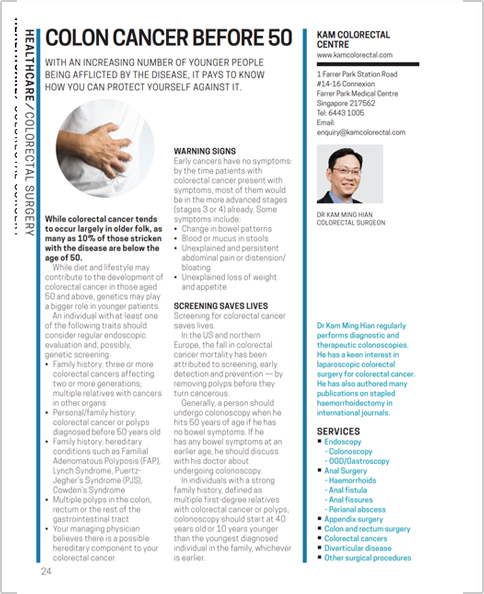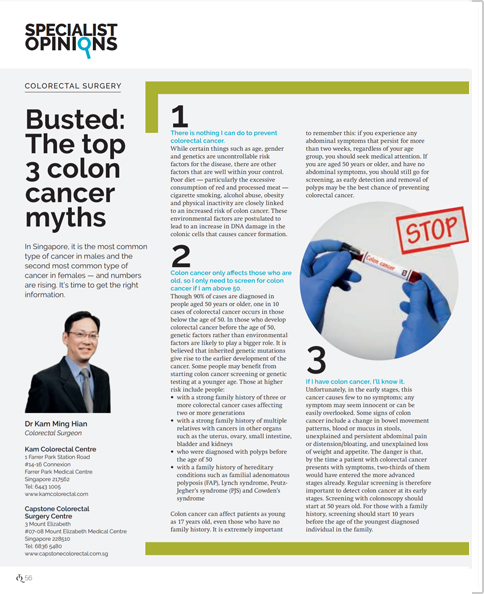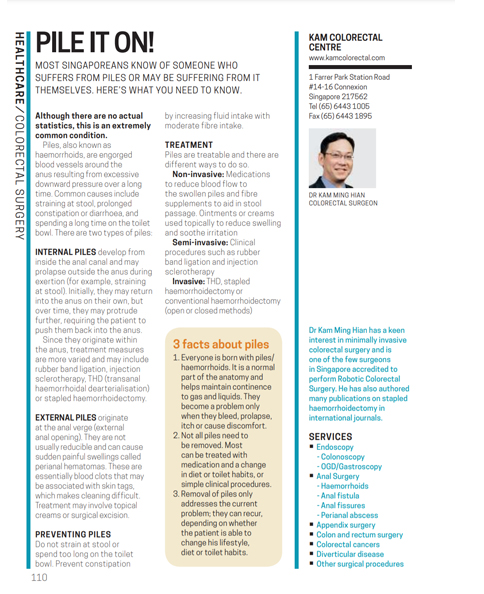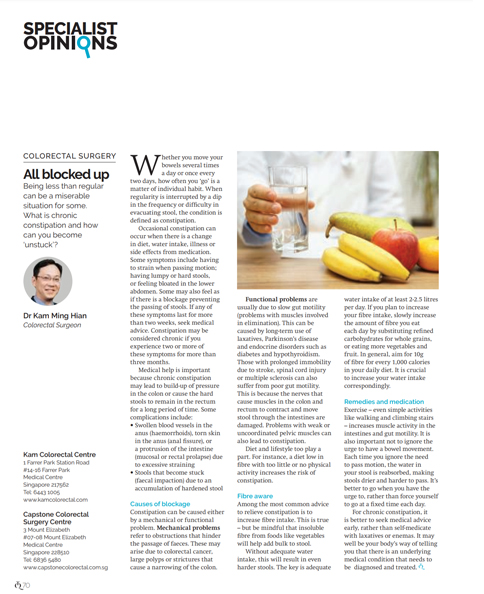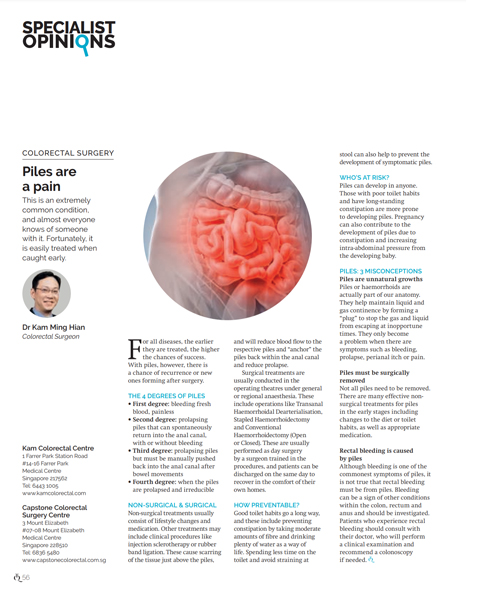
6 Signs you have Appendicitis
The appendix is about
3.5 inches long and
extends from the
lower-right side of
the large intestine.
Although its function
is not fully understood,
it can get inlamed and
cause severe pain and
infection that requires
surgery.
Inlammation occurs due
to two reasons:
- When the appendix is blocked (by stool, a foreign body or cancerous growth; less commonly by worms, inlammatory bowel disease, seeds from fruits or vegetables)
- In reaction to an infection going on elsewhere in the body
Left untreated, an inlamed appendix can eventually burst and release infectious tissue into the abdominal cavity. This can then cause a serious inlammation of the peritoneum (the lining of the abdominal cavity). Peritonitis is fatal unless it is treated quickly with strong antibiotics and surgery.
In some cases, an abscess will form over the inlamed appendix. This pus-illed growth will cause scar tissues to form. Although this creates a barrier between the infected appendix and the abdomen — thus preventing the infection from spreading — the abscess and inlamed appendix are serious conditions. Due to the risk of
peritonitis, all cases of appendicitis are treated as emergencies and beneit from quick diagnosis and prompt surgery.
Symptoms
If you suspect that you have appendicitis, do not to eat or drink — in case you need emergency surgery; neither should you use any pain remedies, antacids, laxatives or heating pads — these can mask symptoms until the inlamed appendix ruptures! Here are the six classic signs of appendicitis:
- A dull pain near the navel or the upper abdomen that grows sharper towards the lower right area of the abdomen
- A fever with temperatures between 37 and 39°Celsius
- Nausea or vomiting after the onset of abdominal pain
- Loss of appetite
- Swelling of the stomach and/or feeling bloated
- Inability to pass gas
If you experience any of these, seek medical attention as soon as possible.
Less common symptoms include:
- Pain in the back or buttock region
- Painful urination
- Vomiting and/or nausea before abdominal pain strikes
- Severe stomach cramps
- Unusual changes in bowel movement (sudden constipation or diarrhoea with gas)
Risk, prevention and cure
There is no known prevention for appendicitis, although some studies indicate that people who eat a diet high in fruit, vegetables and ibre have a lower risk of the condition. The key is really to recognise the symptoms and seek early medical attention.
![]()
20 Years of Colorectal Experience
![]()
Skilled in Minimally Invasive & Laparoscopic Techniques
![]()
Individualised & Cost Effective Treatment for Every Patient
![]()
Medisave and Insurance-Covered Treatment and Procedures
We are proud to provide patients with highly personalised and affordable colorectal treatments in Singapore. At Kam Colorectal Centre, we’ve got your colorectal health covered.
Call +65 6443 1005 or fill in the form below to book a detailed consultation with us.

